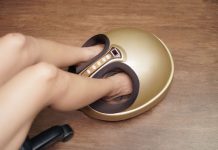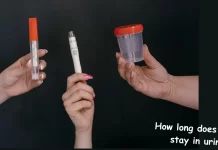Alcohol consumption can have a variety of effects on the body, including the presence of alcohol in the urine. While the liver is primarily responsible for metabolising alcohol, small amounts of it can be excreted in urine. For some individuals, such as those who may need to pass a urine alcohol test for employment purposes, it may be necessary to know how to flush alcohol from urine as quickly as possible. Fortunately, there are several effective strategies for doing so, including increasing water intake, using diuretics, eating healthy foods, and more. In this article, we will explore the most effective methods for flushing alcohol from your urine, helping you to speed up the process of alcohol elimination from your body.
5 Effective Ways to Flush Alcohol from Your Urine
Here are five effective ways to flush alcohol from your urine:
Drink Plenty of Water
Drinking water is one of the most effective ways to flush alcohol from your urine. Water helps to dilute alcohol in your urine, making it easier for your body to eliminate it. Aim to drink at least 8-10 glasses of water per day, and consider drinking even more if you’ve consumed a lot of alcohol.
Use Diuretics
Diuretics are substances that increase urine production, which can help flush alcohol from your system faster. Examples of diuretics include coffee, tea, and cranberry juice. However, it’s important to remember that diuretics can also cause dehydration, so make sure to drink plenty of water when using them.
Urinate Frequently
Urinating frequently can help remove alcohol and its byproducts from your body more quickly. Try to go to the bathroom every hour or so, and don’t hold your urine for too long, as this can cause the alcohol to stay in your system longer.
Eat Healthy Foods
Eating healthy foods, particularly those that are high in fibre, can help speed up the process of alcohol elimination from your body. Good food choices include fruits, vegetables, whole grains, and lean protein. Avoid foods that are high in fat or sugar, as these can slow down the metabolism of alcohol in your body.
Get Plenty of Rest
Getting enough rest is important for your body to properly eliminate alcohol from your system. When you’re sleep-deprived, your body is less efficient at metabolising alcohol, which can cause it to stay in your system longer. Aim to get at least 7-8 hours of sleep per night, and avoid staying up too late after drinking alcohol.
What Not to Do When Trying to Flush Alcohol from Your System
What Not to Do When Trying to Flush Alcohol from Your System” refers to the actions and behaviours that can be counterproductive when attempting to eliminate alcohol from your system. These include:
Drinking more alcohol
Consuming more alcohol will only prolong the presence of alcohol in your body and delay its elimination.
Using drugs or medications
Some drugs or medications can interact with alcohol and cause adverse effects, making it more difficult for your body to process and eliminate the alcohol.
Exercising excessively
While moderate exercise can help with alcohol elimination, overexertion can lead to dehydration and make it harder for your body to flush out the alcohol.
Consuming sugary or fatty foods
Foods that are high in sugar or fat can slow down alcohol elimination by interfering with liver function and metabolism.
Failing to drink enough water
Not drinking enough water can lead to dehydration, which can slow down the process of alcohol elimination from the body.
Avoiding these behaviours and instead focusing on healthy strategies like staying hydrated, eating healthy foods, and getting enough rest can help you flush alcohol from your system more effectively.
How to Pass a Urine Alcohol Test Quickly: Tips and Tricks
Strategies and methods that can be used to quickly eliminate alcohol from the body for the purpose of passing a urine alcohol test. These include:
Drinking plenty of water: Drinking water can help dilute the concentration of alcohol in the urine and speed up its elimination from the body.
Using diuretics: Diuretics can help increase urine production, which can flush alcohol from the body more quickly.
Eating healthy foods: Eating a balanced diet, particularly one high in fibre, can help speed up the process of alcohol elimination by supporting liver function.
Avoiding alcohol: Abstaining from alcohol consumption for a period of time before the test can help ensure that your body has enough time to eliminate any alcohol present in the system.
Getting enough rest: Rest is important for liver function and can help support the process of alcohol elimination from the body.
Using detox products: Certain detox products, such as detox drinks or pills, claim to help eliminate alcohol from the body quickly.
Conclusion
Flushing alcohol from your urine and how to flush alcohol from urine passing a urine alcohol test can be achieved by using a combination of healthy strategies. Drinking plenty of water, using diuretics, eating healthy foods, and getting enough rest are all effective ways to support liver function.
Frequently Asked Questions
Q1:Can you pass a alcohol test in 24 hours?
Ans: It is possible to pass an alcohol test in 24 hours, but it depends on factors such as the amount of alcohol consumed and individual metabolism.
Q2:How long does alcohol stay in the body?
Ans: Alcohol can stay in the body for up to 80 hours, depending on various factors such as amount consumed and individual metabolism.
Q3:What drinks to avoid before a urine test?
Ans: Before a urine test, avoid drinks that can interfere with the test results, such as alcohol, caffeine, and sugary or acidic drinks.
Q4:What foods to avoid for a 24 hour urine test?
Ans: Before a 24-hour urine test, avoid foods that can affect the test results, such as caffeine, alcohol, and high-sodium foods.
Q5:Which alcohol doesn’t smell after drinking?
Ans: No alcohol is completely odorless, but some types of alcohol such as vodka and gin.




